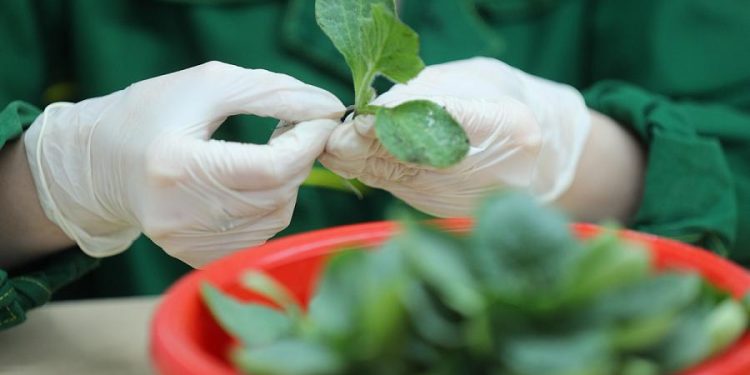The Volgograd region intends to become the largest seed-growing center in Russia in the near future. The issues of implementing these plans and import substitution in the agro-industrial complex were discussed today, on April 28, at a field meeting of the Rostok seedling complex in the Sredneakhtubinsky district, which was held by the head of the region, Andrey Bocharov.
Currently, the enterprise grows up to 300 million seedlings of vegetable crops, which is sold in 17 regions of the country, as well as in the Republic of Belarus. In addition to greenhouses for growing plants, the complex includes a Center for Innovation and Consulting in Vegetable Growing, a robotic service center and a logistics line. The company does not stand still and is implementing an investment project aimed at increasing the area of greenhouses and developing the energy system.
Since the farm uses highly productive hybrid seeds, including foreign ones, the issues of import substitution are very important for vegetable growers. Independence from imports became key at the meeting with the participation of the leading agricultural producers of the region, farmers, employees of breeding and seed production centers, scientists from VolGAU and specialized research institutes, Rosselkhoztsentr.
In particular, the Research Institute for Advanced Research and Innovation in the Agro-Industrial Complex, opened last year on the basis of the Volgograd State Agrarian University, presented its proposals for the development of seed production.
- We intend to take serious steps to strengthen our activities in the development of breeding and seed production. The Volgograd region is ready to allocate funds for the development of this area. We consider this the most important state task,” the governor emphasized and noted that since there is a huge demand for Volgograd seedlings, the task of farmers is to increase the volume of its production in order to meet the needs of everyone.
It should be noted that the Volgograd region did not begin work on solving the problem of import substitution in the agro-industrial complex today. There is an extensive network of research centers and experimental farms in the region. A good base has been created, there is a domestic shift fund in crop production, as well as herds of highly productive breeds of farm animals.































